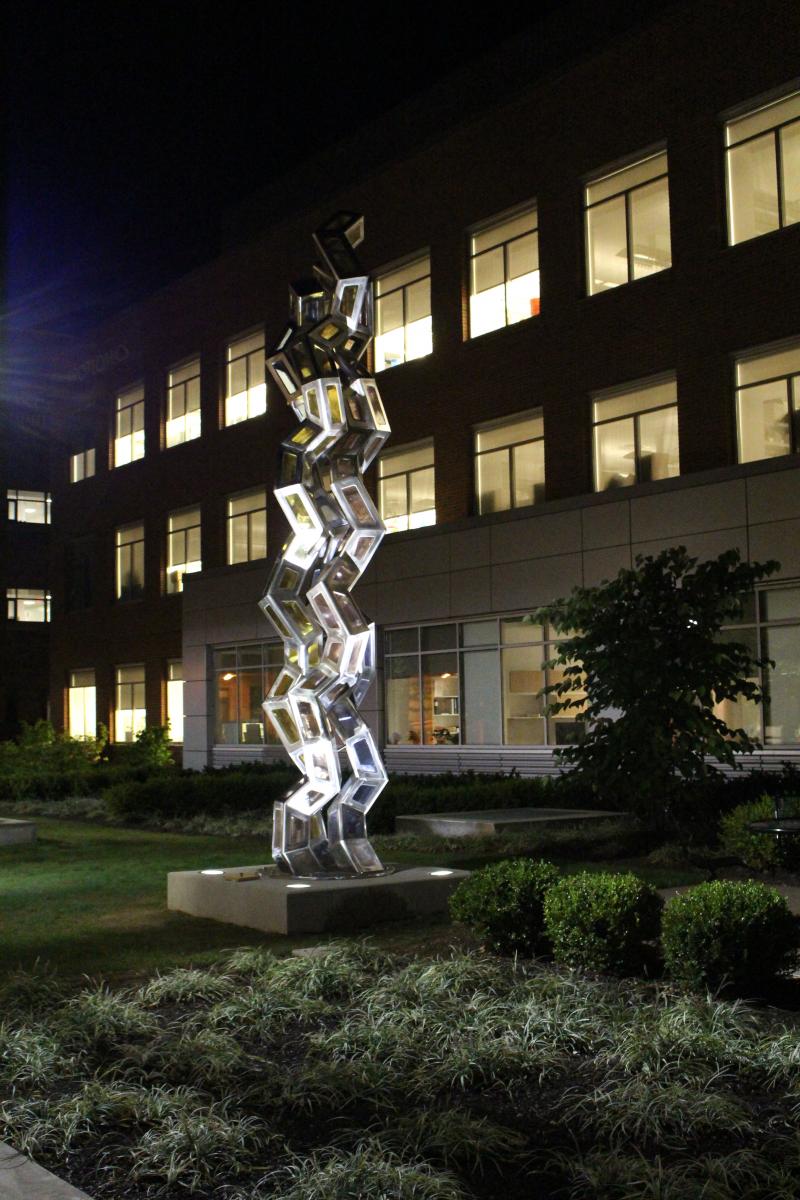About IQB
VisionRutgers University center-of-excellence for interdisciplinary quantitative biomedical research Mission
|
 |
Formation
The Institute for Quantitative Biomedicine (IQB) was established in the wake of the historic merger of Rutgers, The State University of New Jersey, with the University of Medicine and Dentistry of New Jersey (UMDNJ) as part of the university-wide strategic planning process initiated by President Robert L. Barchi. A competitive proposal to establish IQB, submitted in response to a call from the Office of the New Brunswick Chancellor, Dr. Richard L. Edwards, was formally approved by the University Board of Governors in December 2014.
The Institute is the successor to the Center for Integrative Proteomics Research (CIPR) that was officially inaugurated in 2011 with the opening of the Proteomics Building - now the headquarters of IQB. CIPR was the culmination of more than a decade of work to establish a collaborative center dedicated to the fostering of interdisciplinary structure-function studies of complex biomolecular phenomena. The initial CIPR residents consisted of the RCSB Protein Data Bank, the BioMaPS Institute, a graduate program in computational biology, core facilities for structure determination, and research programs in experimental and computational biology.
IQB was officially launched on July 1st 2015 to engage scientists from across Rutgers and foster creation of the biomedical research university of the future. This new initiative occurs in the midst of an unprecedented period of growth in access to patient genome sequences and complementary data coming from high-throughput measurements of biological systems.
The “perfect storm” of organizational change at Rutgers and the Data Science revolution provided the opportunity to establish a broadly inclusive center-of-excellence dedicated to collaborative application of tools from the quantitative sciences to grand challenges in biology and medicine.
Rutgers educators, researchers, and clinicians participating in various Institute activities are working together to redefine how the quantitative sciences of a traditionally structured research university will interoperate with the basic science and clinical departments of two major medical schools.
Priorities
IQB is committed to promoting collaborative research endeavors encompassing Rutgers faculty, researcher associates, postdoctoral fellows, students, and staff as well as industrial partners.
Toward this goal, IQB invites the members of the Rutgers community to participate in the following three offerings:
-
Two interdisciplinary Research Working Groups in Cancer Genomics and Proteomics (Co-Chairs: Shridar Ganesan and Stephen K. Burley) and AntiMicrobial Resistance (Co-Chairs: David Perlin and Stephen K. Burley). Initial focus on these two research areas builds upon considerable strengths resulting from the Rutgers/University of Medicine and Dentistry New Jersey merger. Both teams will develop short- and medium-term research plans, informed by deep subject matter expertise and the outcomes of SWOT (Strengths, Weaknesses, Opportunities, and Threats) analyses. These Research Working Groups, along with others that will be initiated over time, will be expected to seek federal funds to support collaborative research coming from these deliberations.
-
Crash Courses, seminars, and new courses to provide up-to-the-minute education and opportunities for interacting with experts in the field
-
Annual Winter and Summer Interdisciplinary Quantitative Biology Boot Camps on diverse topics, offered as intensive, full-time one or two credit courses. The Boot Camps generally attract more than 100 participants from across Rutgers (undergraduates, graduate students, M.D./Ph.D. students, post-doctoral researchers, faculty, and staff). The focus of the 2018 Winter Boot Camp will be Cryo-Electron Tomography (provided in collaboration with partners in industry), exposing participants to the principles, methods, and actual data collection and analysis.
Members of the Rutgers community are also encouraged to use the University Core Research Facilities housed in the Proteomics Building on the Ground Floor.
